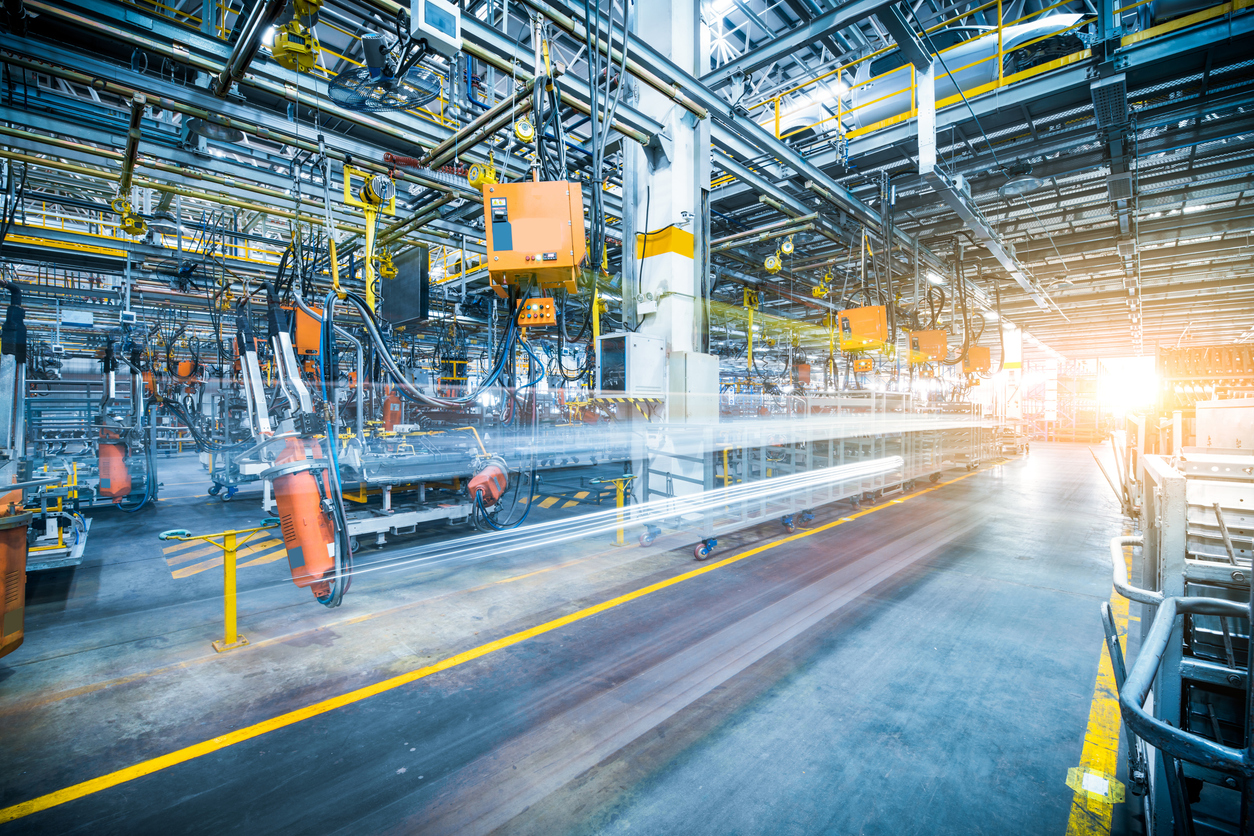Embracing the Factory of the Future: Revolutionizing Manufacturing with Advanced Technologies
The manufacturing industry is on the cusp of a major transformation, driven by rapid advancements in technology. The concept of the “factory of the future” represents this transformation—a vision of manufacturing that is highly automated, digitally connected, and optimized for efficiency and innovation. As industries worldwide seek to enhance productivity, reduce costs, and meet evolving customer demands, the factory of the future offers a blueprint for achieving these goals.
At Wigmore Trading, we are at the forefront of this revolution, offering solutions and consulting services that help businesses transition to the factory of the future. In this article, we’ll explore what the factory of the future entails and how it can revolutionize manufacturing operations.
What is the Factory of the Future?
The factory of the future is an advanced manufacturing environment where digital technologies, automation, and data-driven processes are seamlessly integrated to create highly efficient, agile, and sustainable operations. It leverages cutting-edge technologies such as the Internet of Things (IoT), artificial intelligence (AI), robotics, and cloud computing to optimize every aspect of manufacturing, from design and production to supply chain management and quality control.
Key Features of the Factory of the Future:
- Automation and Robotics: High levels of automation with robots and machines performing repetitive and complex tasks with precision.
- IoT Connectivity: Machines and devices are interconnected, allowing real-time data exchange and process optimization.
- Artificial Intelligence: AI-driven analytics for predictive maintenance, quality control, and decision-making.
- Digital Twins: Virtual models of physical assets and processes used for simulation, optimization, and monitoring.
- Advanced Supply Chain Management: Digitally connected supply chains that are agile, responsive, and optimized for efficiency.
- Sustainability and Energy Efficiency: Environmentally friendly operations with reduced waste, energy consumption, and emissions.
Why the Factory of the Future is Essential
Enhanced Productivity and Efficiency
The factory of the future is designed to maximize productivity and efficiency through the use of automation and data-driven processes. Automated systems and robots can operate 24/7 without human intervention, significantly increasing production rates and reducing downtime. Additionally, the integration of IoT devices enables real-time monitoring and optimization of production processes, ensuring that resources are used efficiently and that potential issues are identified and addressed before they escalate.
Improved Quality and Consistency
In the factory of the future, quality control is enhanced through advanced technologies such as AI and machine learning. These technologies enable real-time analysis of production data, allowing for immediate detection of defects and deviations from quality standards. By implementing predictive maintenance strategies, manufacturers can also reduce the likelihood of equipment failures, further ensuring consistent product quality. The result is a higher level of precision and reliability in manufacturing processes, leading to better products and increased customer satisfaction.
Agility and Flexibility
One of the key advantages of the factory of the future is its ability to adapt quickly to changing market demands. With digitally connected systems and AI-driven analytics, manufacturers can rapidly adjust production schedules, reconfigure equipment, and scale operations up or down as needed. This agility allows businesses to respond more effectively to fluctuations in demand, new customer requirements, and emerging market trends. The factory of the future is also characterized by modular and flexible production lines that can be easily reconfigured to produce different products, enabling greater product variety and customization.
Sustainability and Environmental Responsibility
Sustainability is a critical focus of the factory of the future. Advanced technologies enable manufacturers to reduce their environmental impact by minimizing waste, optimizing energy consumption, and improving resource efficiency. For example, IoT sensors can monitor energy usage in real-time, allowing for adjustments that reduce consumption and lower carbon emissions. Additionally, digital twins and simulation tools help manufacturers design more sustainable products and processes, further contributing to environmental responsibility.
Data-Driven Decision Making
In the factory of the future, data is a key asset. The vast amounts of data generated by interconnected machines and devices are analyzed using AI and machine learning algorithms to provide actionable insights. These insights enable manufacturers to make informed decisions that optimize production, improve quality, and reduce costs. Data-driven decision-making also enhances supply chain management by providing real-time visibility into inventory levels, supplier performance, and logistics, ensuring that the entire manufacturing ecosystem operates smoothly and efficiently.
How Wigmore Trading Can Help You Build the Factory of the Future
At Wigmore Trading, we are committed to helping businesses transition to the factory of the future. Our comprehensive solutions and consulting services are designed to support manufacturers in adopting advanced technologies, optimizing operations, and achieving sustainable growth.
Our Approach
Our approach to building the factory of the future begins with a deep understanding of your current operations, challenges, and goals. We work closely with your team to identify areas where technology can drive the most significant improvements and develop a customized roadmap for implementation. From automation and IoT integration to AI-driven analytics and supply chain optimization, we provide the expertise and support needed to transform your manufacturing operations.
Services Offered:
- Automation and Robotics Integration: We help you implement advanced automation and robotics solutions that enhance productivity, reduce costs, and improve safety. Our services include designing automated workflows, selecting and integrating robotic systems, and training your workforce to work alongside these technologies.
- IoT and Connectivity Solutions: Transform your manufacturing operations with our IoT connectivity solutions. We provide end-to-end support in deploying IoT devices, connecting machines and systems, and leveraging data to optimize processes in real-time.
- AI and Data Analytics: Unlock the power of data with our AI-driven analytics services. We help you implement AI tools for predictive maintenance, quality control, and decision-making, enabling you to make data-driven decisions that improve efficiency and reduce waste.
- Digital Twin Technology: Leverage digital twins to simulate, monitor, and optimize your manufacturing processes. Our services include developing digital twin models, integrating them with your physical assets, and using them to drive continuous improvement.
- Sustainable Manufacturing Practices: Reduce your environmental impact with our sustainability consulting services. We help you implement energy-efficient technologies, optimize resource usage, and design sustainable products and processes.
- Advanced Supply Chain Management: Enhance your supply chain’s agility and resilience with our advanced supply chain management solutions. We provide support in digitizing your supply chain, improving transparency, and optimizing logistics and inventory management.
Conclusion
The factory of the future represents a significant leap forward in manufacturing, offering unparalleled opportunities for efficiency, quality, and innovation. By embracing advanced technologies such as automation, AI, and IoT, manufacturers can transform their operations and achieve long-term success in a competitive market.
At Wigmore Trading, we are dedicated to helping businesses realize the full potential of the factory of the future. Our expert consulting services and cutting-edge solutions are designed to support your journey towards a smarter, more sustainable, and more efficient manufacturing environment.
Get in touch:
Ready to build the factory of the future? Get in touch with Wigmore Trading today and discover how our advanced solutions and consulting services can help you transform your manufacturing operations. Contact us via our website, email, or phone, and let’s start building a smarter future together.








Comments are closed.